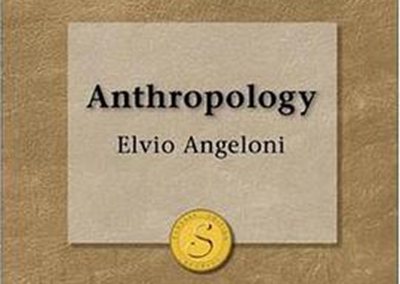精英团队
Blog
- 2025/04/08留学生论文作业代写网课代做
- 2023/07/04北美靠谱代写:100%原创订制,无压力拿A
- 2021/06/30管理会计学作业代写,Assignment代写
- 2021/06/30留学生代写,美国作业代写
Blog
Anthropology 人类学代写,ANTH网课代修
来源:CRessay添加时间:2021/06/01 点击:
代写Anthropology paper ,Report,Assignment,Exam代考,网课代上,Dissertation,
人类学论文写作技巧
查找文献
留学生写人类学论文的时候文献的使用是必不可少的, 一般学生查找文献的渠道有非常之多, 学生主要有知网, 学校图书馆, 导师推荐, 因为文献来源的数据众多, 所以对于文献和数据的整理也是比较的困难的, 学生容易出现混乱的情况, 所以选择文献时要学会归纳整理.
选择题目
论文题目选择的标准时不一, 根据每个人的实际情况进行选择, 但是选择题目有几个核心的点要注意, 第一就是学会借鉴, 写好人类学论文在网在有好多的论文可供大家选择借鉴, 但是你可以参考不可以选择数量太多, 否则就有抄袭的嫌疑了, 此外论文的选题要紧跟时代的步伐, 贴合实际, 字数不宜太多.
内容创新
一篇能抓住老师的眼球并能获得高分的论文绝对不是偶然, 在撰写人类学论文之前你就已经要具备创新思维了, 学会博采众长, 论文的全局通顺, 让人家一眼看去就时眼前一亮的感觉, 多用数据说话, 多用理论分析案列, 逻辑结构不能丢.
If we follow the unequivocal and salutary example of Aquinas, we will make no distinction between lex and ius when the latter term signifies what it signifies in, for example, the phrases ius civile or ius naturale – phrases used by St Thomas entirely synonymously with lex civilis and lex naturalis respectively.7 Hence ―jurisprudence‖ and ―philosophy of law‖ can appropriately be used entirelywww.classroomessay.comsynonymously, as is usual in English-speaking countries. Of course, both etymological elements in the word ―jurisprudence‖ have some gravitational pull (far from irresistible) towards the relatively more particularized, less universal and hence less philosophical.8 But just as Aquinas treats legis positio as a name not www.classroomessay.comonly for the highly particular business of making laws but also for the supreme level of politica, political philosophy/theory, and treats politica as on the same level as philosophy with philosophia moralis – indeed, as being a branch or kind, supremely dignified, of philosophia moralis9 – so too we can rightly take jurisprudence and philosophy of law alike as ranging from the exploration of specific juridical techniques (critically investigating these techniques‘ rational foundations in considerations of human flourishing and moral right) all the way up to the highest and widest principles and other considerations of moral and political theory.
Since ―natural law‖, in the present context, has the same reference as ―the normative principles and standards of ethics and politics‖ (or ―normative political philosophy‖), everything said so far in this article is a piece of natural law theory. That theory autonomously yields, as one of its intrinsic elements, the thesis that www.classroomessay.comhuman societies need positive law, and an account of many needed features of law, legal systems, and the Rule of Law. Natural law theory, in this context, is just another name for legal philosophy. It is fully positivist, if by that we mean that, properly pursued, it yields a completely sufficient account of the concept and characteristic institutions and sources of positive law and the Rule of Law. There is no proper place for a positivism outside natural law theory.10
The (legal) positivism that is self-conceived as somehow in opposition to natural law theory is (just in so far as it both maintains that self-identification and includes theses differing from those of natural law theory)11 a set of more or less confused and arbitrarily truncated theories, conceived in some instances on the basis of grave misunderstanding12 of the tradition of natural law theory and of some of its theorems, and in other instances as simply the expression of moral scepticism (denial that there are any true propositions about human good and moral right) – and in some instances again, such as Kelsen, on both bases. Neither basis is defensible. Misunderstanding should be abandoned, by attending to evidence and reading classic texts with some care and attention. Scepticism about practical truth may seem at first to be a more worthy basis for legal positivism. But, leaving to one side the responses that can rightly be made to sceptical theses and arguments in ethics (or ―meta-ethics‖),13 it should be acknowledged that if scepticism is correct, there is no philosophy of law. At most there can be historical accounts (tracking competent legal practitioners‘ accounts) of particular communities‘ accepted or imposed normative systems self-interpreted as legal, and of systems analogous to those. The history or set of histories might be eked out by some sort of statistics concerning frequency or ―typicality‖. But if nothing true can be said about human good, there is nothing to be thought or said about normativity, authority, obligation, validity and similar concepts, all of which get their sense on the presupposition that practical reason can distinguish between true and false, good reason and lack of reason, and so forth.
- 上一篇:Food Science 营养学 Essay代写
- 下一篇:没有了





